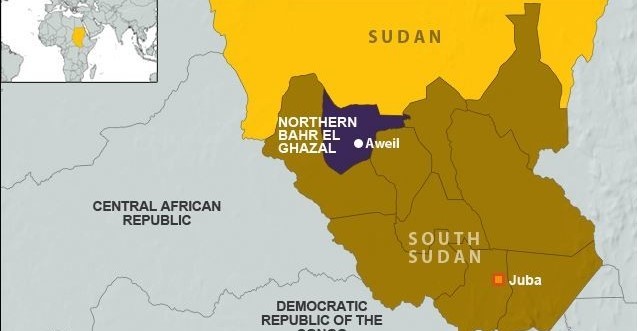The women entrepreneurs specialized in cloth boutiques, restaurants, tea-selling and shopkeepers in Aweil town of South Sudan’s Northern Bahr el Ghazal State complained of the slowdown of their businesses since the Health ministry announced the COVID-19 health measures across the country.
“The negative effects of Covid-19 became a problem for us, our small businesses now have collapsed, no goods and the owners of shops are disturbing us,” said Elizabeth Adut Garang, a businesswoman dealing in some cloth boutiques in Aweil. “The small thing we get, we pay for rent and there is no income.’’
This comes in an interview conducted by Radio Tamazuj last week, when several women confirmed that they are living in bad conditions, adding that their businesses have negatively fallen compared to the months before the outbreak of COVID-19 pandemic.
South Sudan has so far reported more than 2,000 confirmed cases, and 45 deaths, while 1,185 people have recovered from the COVID-19 disease since the country announced its first case on April 5th, 2020.
Awan Mel, a local restaurant owner near Aweil Main Mosque also said she faced some challenges when buying food items for the restaurant. Adding that she bought the items with high prices but later at the end, she achieved nothing.
“Everything is stopped and things are too expensive at local markets. A kilogram of sugar costs at 400 SSP and wheat flour kg reaches 350 SSP, everything is going wrong because no one can eat at your restaurant if you increase meal prices to get your benefit,’’ she said.
On his part, Malong Deng Nyuany, a chairperson of the chamber of commerce in the Northern Bahr el Ghazal state, admitted that most of the businesses have collapsed in the area due to the COVID-19 preventive measures that forced the government to close all commercial routes to South Sudan.
Northern Bahr el Ghazal State borders East Darfur and West Kordofan States of Sudan.
Arich Marko, another restaurant owner complained that most customers refuse to access food at unhealthy restaurants which are always untidy and that caused most restaurants to lose customers.
“I am working at a restaurant in the main market. Of course, there are problems related to the unclear business, because people fear not entering an unclean restaurant thinking that they can contract the virus,” said Arich Marko. “Business is dropping because many people are eating at homes.”
Chan Awier, the director-general for Northern Bahr el Ghazal State ministry of health told Radio Tamazuj on Wednesday that all restaurants and tea cafe owners have to make sure of using hand washing, social distancing and use of face masks are respected.
“People can catch COVID-19 from others who have the virus,” the World Health Organization (WHO) says on its website. “The disease spreads primarily from person to person through small droplets from the nose or mouth, which are expelled when a person with COVID-19 coughs, sneezes or speaks.”
The South Sudanese government has ordered people to wear masks in public areas.
According to the WHO, uses of masks by the general population in the community setting are to reduce potential exposure from someone who is sick and contagious, but may not have symptoms.
Awier confirmed that the United Nations Development Program (UNDP) distributed many face masks last week in Aweil to fight against the spread of the virus.
Nyabac James, a restaurant owner in Aweil, said she is aware of health regulations and rules against the virus, which includes hands washing and others like avoiding handshake greetings. Still, even following precautions she says her business is affected.
“People are not coming nowadays to my restaurant as usual,” Nyabac said. “They came in two or three because they feared contracting the novel virus.”
Despite all the efforts to stop the spread of Coronavirus, the reality on the ground can be quite different. Several churches, social gatherings like disco, cultural activities and public rallies in South Sudan are still being violated despite warnings to restrict public gatherings to contain the virus.
Sunday Marko, another young businesswoman working as tea seller at Aweil's main market, said things have turned from bad to worse due to the pandemic.
“Coronavirus has brought us many problems and everything is not in place as before,” Marko said. “We pray hard so that God may take away the virus.”




